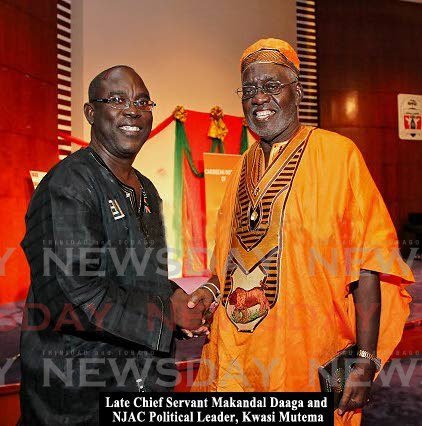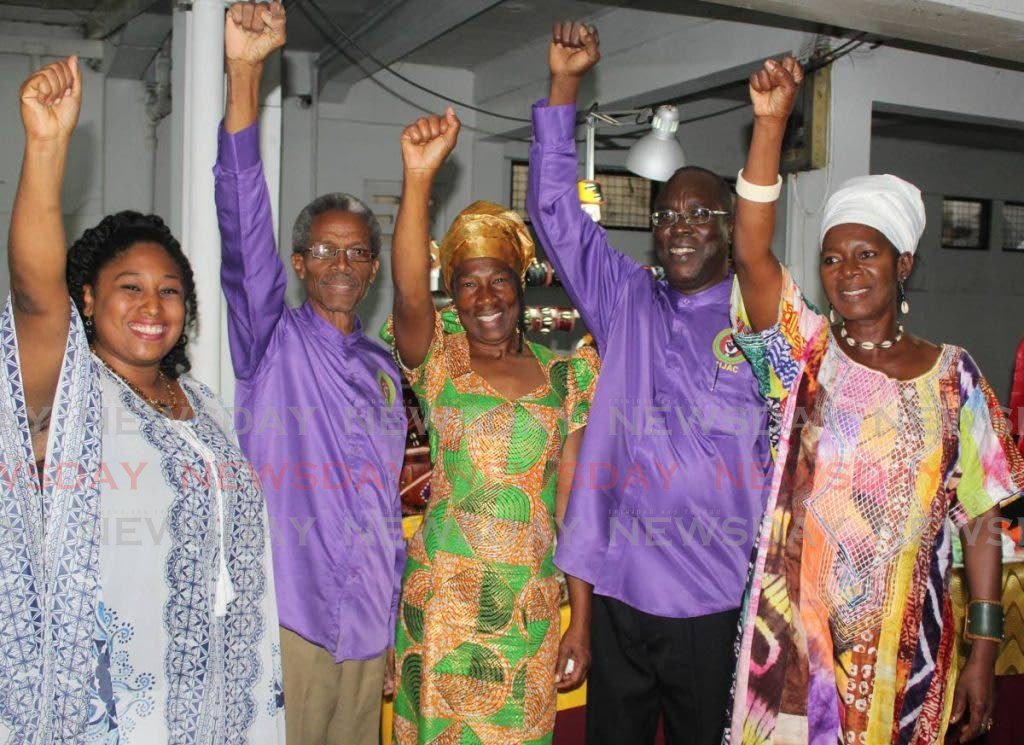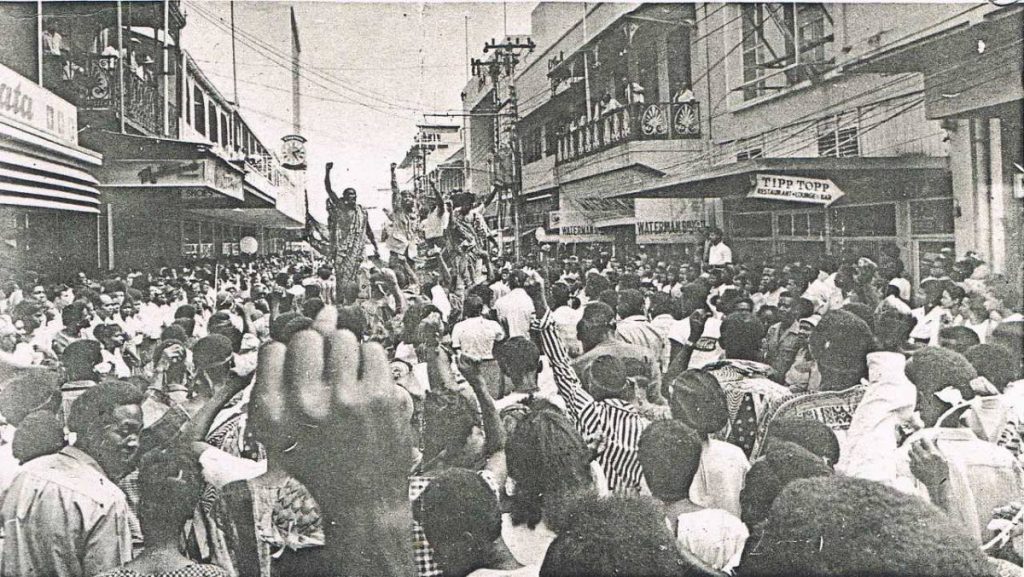A 50-year quest for People’s Power – 1970 to 2020

EMBAU MOHENI
TODAY marks the 50th anniversary of a most significant date in our history, the TT Revolution of 1970, also called the Black Power Revolution. Fifty years ago, the then government led by Dr Eric Williams, declared a state of emergency (SOE) in response to the campaign by the National Joint Action Committee (NJAC) to unite the two major races of the country – Africans and Indians.
On March 12, 1970, NJAC, under the leadership of Makandal Daaga (then Geddes Granger) led a mass demonstration to Caroni and Couva to unite the two major races. The love the demonstrators were greeted with, as students lined the streets waving flags and the community provided free doubles, juice and water, remains to this day a hallmark of the phenomenal transformation NJAC achieved for the eradication of the politics of “race and hate”. This singular achievement stands out as unprecedented in our nation’s quest for humanity and national development. It starkly contrasted with the politics of race that retarded national growth in the 1960s and which has once again become a self-destructive cancer in national life.
The SOE came after mass demonstrations between February 26 and April 21, 1970, in north, south, east and central TT. It was intended to crush the movement and deny people their God-given right to determine their own destiny.

Under NJAC’s leadership, the population was questioning the foundations of nationhood. People were waking up to the reality that Independence had brought little more than some watchwords, a flag, an anthem (for us to stand proudly at attention) and lots of window dressing. The economy was still owned by foreign and local white elites and race remained a dominant factor in every aspect of national life. Under the leadership of Daaga and NJAC, people were now moving to remove these colonial relics.
The movement also redefined the entire nation as one family, with the principle, be a brother, be a sister. We now saw ourselves as brothers and sisters, one for all and all for one. Such was the spread of love that was generated across the nation that the crime rate went down by a record 56 per cent in 1970. Never before, nor since, have we enjoyed such a massive success against the crime scourge.
Chief Servant Daaga led the movement from its inception. With his exceptional genius, undying love for his people and his absolute confidence in their ability to rise, he inspired an entire nation to reclaim its manhood and womanhood in pursuit of equality and justice. And though he was then banned from every territory in the English-speaking Caribbean, except Guyana, his powerful regional vision saw him rise to the leadership of the Caribbean movement. In 1973 he was appointed to head the regions of the Caribbean, Central and South America for the Sixth Pan African Congress and also chaired the Caribbean Liberation Steering Committee. Two members of this committee, Roosevelt “Rosie” Douglas and Maurice Bishop, went on to become prime ministers of Dominica and Grenada, respectively. Other countries represented were Guyana, Antigua, Jamaica, French Guiana and Barbados.
Daaga’s exceptional oratory, his brilliant and unique ideas and methods, his incredible courage and determination and his absolute commitment to the people, defined the TT Revolution and made it a model for change in other parts of the world.

We must honour the heroic struggle of this nation’s people for making the great movement of 1970 the remarkable phenomenon it was. Their relentless demands for economic change force PM Williams to acquire the Bank of London & Montreal in one day, so he could announce, on March 23, that we had our own “National Commercial Bank” (now First Citizens Bank). It was a huge victory for the people. It also led to establishment of state enterprises, which created avenues for employment and utilisation of the managerial capabilities of the African and Indian sectors of the population.
Our people showed great strength in resisting the draconian Public Order Act during the brutal and repressive seven-month SOE of 1970. Their fortitude was such that three weeks after the lifting of the emergency the government had to declare a limited one-day SOE to prevent NJAC from leading a Rededication March into Port of Spain on December 12, 1970.
As NJAC and the people continued to organise for change, the government called another SOE on October 19, 1971 and imprisoned the NJAC leadership for another eight months. All this NJAC and the population have endured in the pursuit of equality and justice.
As NJAC reflects on the past 50 years, we remain committed, strong and prepared to continue this journey with our people for a new and just society. We fully commend the enduring patience and determination of our people and we are fully confident that the sacrifices made and the many pains endured will not be in vain. The dignity and honour of our people will be restored.
Embau Moheni is president of the National Joint Action Committee

Comments
"A 50-year quest for People’s Power – 1970 to 2020"